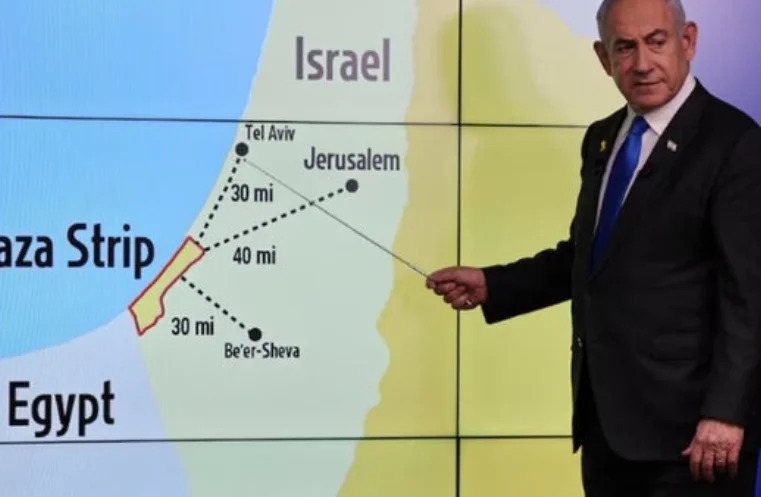Islamabad, Jan 11: A major diplomatic controversy has unfolded following the Israeli Ministry of Foreign Affairs’ recent posting of a new map on its Arabic-language social media accounts.
This map asserts “historical territorial rights” over Palestine, as well as significant portions of Jordan, Lebanon, and Syria, sparking outrage across the Middle East.
Leading Gulf nations, including Qatar, the United Arab Emirates, and Saudi Arabia, swiftly denounced the map’s publication.
These countries condemned Israel for what they called an egregious violation of international law, which they argued undermines regional peace efforts. The Greater Israel map, which incorrectly portrays Palestinian, Jordanian, Syrian, and Lebanese territories as Israeli land, has become a focal point of widespread criticism.
Qatar’s Ministry of Foreign Affairs was particularly vocal in its condemnation, describing the map as a “flagrant violation of international legitimacy resolutions and the provisions of international law.”
The statement emphasized that such provocative actions would only escalate tensions in an already volatile region, especially as the war in Gaza continues.
Qatar urged the international community to take immediate action, pressuring Israel to adhere to internationally recognized borders and stop its territorial expansionist agenda.
The implications of this move are far-reaching, particularly for the fragile peace process in the region. Critics argue that Israel’s actions not only disregard the rights of Palestinians but also inflame longstanding disputes with its Arab neighbors. By making such claims, Israel is seen as exacerbating the already volatile situation, further isolating itself from the Arab world and potentially destabilizing an already tense geopolitical landscape.
The international community’s response to this development is crucial. As tensions rise, there are growing calls for global intervention to hold Israel accountable for what critics view as a blatant disregard for peace and territorial integrity. With a fragile peace at stake, the actions taken by both Israel and the international community will determine the future of stability in the Middle East.
These countries argue that the newly shared map includes occupied Palestinian territories and parts of neighboring Arab lands as part of “Greater Israel”.
